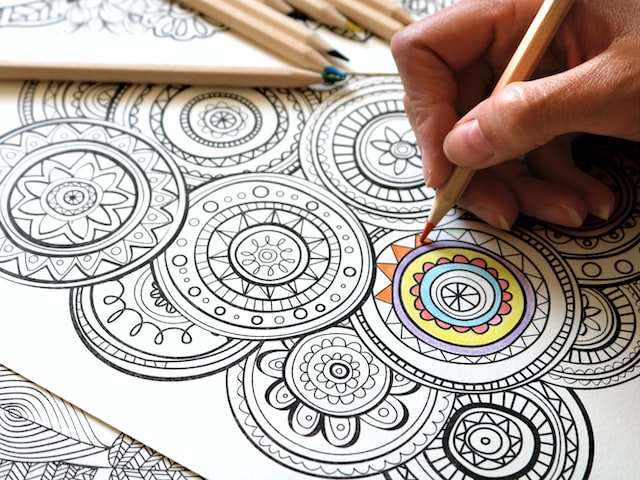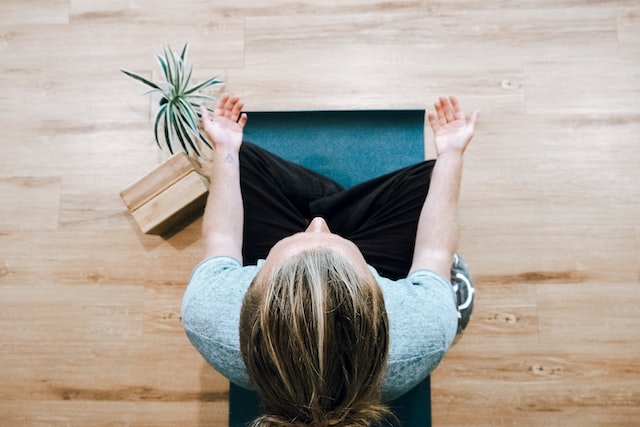Self-Care to Support Wellbeing
Taking care of yourself mentally, physically and emotionally is critical to your overall wellbeing. Self-care includes physical, mental, and emotional health-promoting activities and practices. Exercise, a clean diet, good sleep, personal care, journaling, setting boundaries, asking for help, enjoying hobbies, and spiritual practices are all examples of self-care. You will need to determine what works best for you and incorporate it into your daily routine.
For this week's podcast episode, I interviewed Michele Riechman, an expert health coach and personal trainer with her doctorate in physical therapy. She explains that self-care is not selfish; it is essential for maintaining balance in our lives and for the ability to show up for ourselves and others fully. It allows us to recharge and refocus, leading to increased productivity and happiness.
Self-care is essential for general health and wellbeing because it enables us to look after ourselves physically, intellectually, and emotionally. As a result, we are better equipped to deal with the challenges and demands of daily life and are more resilient in the face of adversities.
Self-care activities such as exercise, a good diet, and sleep may enhance our physical health, increase our energy levels, and strengthen our immune system.
Journaling and mindfulness, for example, can help us regulate our emotions and lessen feelings of worry and anxiety. Emotionally, self-care may aid in the formation and maintenance of healthy relationships, as well as the development of a sense of connection and belonging.
“Breathe. Let go. And remind yourself that this very moment is the only one you know you have for sure.”
- Oprah Winfrey
Self-care may also contribute to enhanced productivity and creativity since we can better focus and think clearly when we are well-rested and feel good about ourselves.
Physical Self-Care
Exercise and Physical Activity
Physical activity and exercise are crucial components of self-care because they provide various physical and mental health benefits. For example, regular physical activity can improve cardiovascular health, boost strength and flexibility, and lower the risk of chronic illnesses such as obesity, type 2 diabetes, and heart disease.
In addition to these physical benefits, exercise and physical activity can improve mental health. It can aid in the reduction of stress and anxiety, boost your mood, and increase self-esteem and confidence. Exercise has also been found to stimulate endorphin release, which increases brain chemicals that serve as natural painkillers and mood lifters.

It is important to pick a physical activity that fits your lifestyle. This increases the likelihood you will stick with it in the long run. For example, going on a walk or run, taking a yoga or dancing class, engaging in team sports, or working out at a gym can include exercise and physical activity into your self-care regimen.
On most days of the week, consider engaging in at least 30 minutes of moderate-intensity physical exercise. However, your unique situation and fitness level will determine the amount and intensity of exercise you can do. Before beginning a new workout regimen, talking with a healthcare physician is usually a good idea.
Proper Nutrition
Eating a clean and healthy diet is an essential element of self-care since it helps maintain overall health and wellbeing. A nutrient-dense, well-balanced diet can enhance physical and mental health, increase energy, and improve mood.
Several nutritional regimens can help, and selecting one that works for you and fulfills your specific needs is critical. For example, eating a variety of nutrient-dense foods from all food groups, such as fruits, vegetables, whole grains, lean proteins, and healthy fats; limiting your intake of processed and sugary foods; staying hydrated by drinking plenty of water; paying attention to portion sizes; and seeking advice from a healthcare provider or a registered dietitian if you have specific health concerns or goals are some general guidelines for maintaining proper nutrition.
Incorporating healthy nutrition into your self-care routine may also entail being careful of your eating habits and setting aside time to sit down and enjoy meals without interruptions. This can aid in the promotion of a healthy relationship with food and supporting overall wellbeing.
Sleep
Sleep is an important element of self-care since it affects both physical and emotional wellbeing. Adequate sleep is required for the body to heal and replenish and for cognitive functions, such as memory and attention.
Inadequate sleep may harm both physical and mental health, increasing the risk of chronic illnesses such as obesity, type 2 diabetes, and heart disease, decreasing cognitive performance, and increasing emotions of stress and worry.

Establishing a consistent bedtime routine, avoiding screens (such as phones, tablets, and TVs) for at least an hour before sleep, creating a comfortable sleep environment (e.g., keeping the bedroom cool, dark, and quiet), and practicing relaxation techniques such as deep breathing or meditation are all important ways to promote good sleep. It is also vital to strive for 7-9 hours of sleep every night, while the exact quantity of sleep required varies from person to person.
If you are having trouble falling or staying asleep for some time, you can consult your doctor to rule out any underlying medical concerns. If you have chronic insomnia, you may also benefit from a visit to a sleep clinic, or working with alternative approaches like changing your exercise routine, adding relaxation techniques, or even therapy for addressing chronic stress or anxiety in your life.
Hygiene
Personal care is essential to self-care since it contributes to general health and wellbeing. Whenever I was struggling, I felt like my personal care was something I didn’t have the energy for. Brushing my teeth or having a shower required so much effort. I would sometimes go days without changing my clothes.
If you find yourself putting your personal care on the backburner, maybe consider the reasons in a little more detail. Are you just busy and need to organize your time differently? Or are you experiencing deeper distress and need some support?
Your household is also a good indication of what’s going on. Clutter in your house can translate to clutter in your mind. Seeing laundry, dishes and clutter around you all the time can actually increase feelings of stress and anxiety. And although it might seem like cleaning is not directly self-care, it can support your overall health and wellbeing.
Mental and Emotional Self-Care
Journaling and Reflection
Journaling and introspection are types of self-care that include spending time writing or expressing our thoughts and emotions. Because it helps us to examine our inner experiences and acquire insight into our thoughts and feelings, this may be a valuable tool for mental and emotional wellbeing.
There are several methods to incorporate journaling and reflection into your self-care routine. You can keep a daily notebook to keep track of your ideas, feelings, and experiences. Keep a “Gratitude Journal” to focus on the good things in life. Some people use prompts or questions to direct their writing and contemplation. If you are artistic, you might express and process your feelings through creative writing, poetry, drawing, or doodling. I have to admit I am a huge fan of adult coloring books and coloring mandalas.

Journaling and reflection can be especially beneficial for stress and anxiety management since they allow us to process and release negative feelings. They can also assist in increasing self-awareness and communication skills.
There is no right or wrong way to write and reflect, and choosing an approach that works for you and feels natural is critical. In addition, setting aside time for these activities might help you incorporate them into your self-care routine.
Setting Boundaries
Especially if you have experienced trauma or distress, setting boundaries can be a difficult step. At first, it may not feel safe to express what you want, concerning your personal space and physical touch. You may even feel like you don’t deserve to set any boundaries. Remember to take it very slow and begin this process gradually. As you find your voice, you may find setting boundaries feels more natural and less threatening.
You may also want to set some emotional boundaries. This could include limiting how much of your emotional energy you are willing to offer to others. Depending on your situation and experiences, this could mean limiting the amount of time you spend listening to or supporting others.
If you feel overwhelmed during the day, you may also consider setting some time boundaries. Being protective of your time is nothing negative. It helps strengthen your wellbeing and support you in how you would like to structure your day. It could include limiting how much time you are willing to dedicate to specific hobbies or relationships. Or, declining obligations that do not align with your beliefs or conflict with your self-care time.
In today’s day and age, you may want to add digital boundaries to your list. Unplugging for some time each day can be healthy. But, the other side is that some people might feel isolated without social media. Be mindful of what you want and what makes you feel good.
It's crucial to remember that creating boundaries is a process that may require some trial and error to figure out what works best for you. It is equally important to explain your boundaries to people clearly and assertively, so everyone can be on the same page.
Seeking Support from Friends and Loved Ones
Seeking help from friends and loved ones is an integral part of self-care since it may help enhance our mental and emotional wellbeing and create a feeling of connection and belonging.
Sharing your thoughts and feelings with someone you trust; seeking advice or guidance from someone who has experience with a similar issue; asking for help with a specific task or challenge; participating in group activities or hobbies with friends; or seeking professional help, such as therapy or counseling, to address mental health concerns are all ways to seek support from friends and loved ones.
When we struggle, we tend to isolate and hide from people because it is too difficult to explain what we are going through. The down side of that is that supportive connections can actually make us feel less stressed, anxious, and alone. An important part of self-care is to learn to share with people you trust, and ask for help when you need it.
Engaging in Joyful Hobbies and Activities
Hobbies and activities that offer joy are vital parts of self-care because they help us relax, destress, and have fun. They can also increase self-esteem and create a sense of accomplishment.

Here are some suggestions, but remember that selecting activities that speak to you individually is key. To unwind and express yourself, you can try some creative hobbies such as painting, drawing, writing, or music. Participating in sports or other physical activities that you like may also be a fantastic method to release stress and enhance endorphins. If you prefer learning, taking on a new challenge or learning a new skill may be a gratifying and enjoyable experience. And, if you enjoy socializing, spending time with friends and loved ones, and engaging in activities that you both enjoy may be a tremendous source of joy and connection.
It’s important to make time for hobbies and activities that offer you joy and to include them in your self-care routine regularly. Remember that if your hobbies or priorities change, it's alright to take a break or try something new. If your hobbies start to feel like chores, it will undermine the whole point of self-care.
Spiritual Self-Care
Practice Mindfulness and Meditation
Mindfulness and meditation are excellent ways to include self-care into your everyday routine. Mindfulness helps you bring your attention to the present moment without judgment. It can be practiced through activities like focusing on your breath, paying attention to your senses, or watching your thoughts and feelings. Meditation can also help you become more present and focused. You can practice meditation in different ways, including sitting, walking, and even movement like tai chi or yoga.
Some amazing benefits of mindfulness and meditation include reducing stress and anxiety, improving mood and emotional wellbeing, increasing attention and concentration, and physical relaxation.

Mindfulness and meditation may be practiced anywhere and at any time, with no special equipment or experience required. In addition, different tools are available to help you get started, such as guided meditation and mindfulness apps. As with all self-care, it’s important to find what works for you and be patient with yourself as you learn and grow.
Connect with Nature
Spending time in the great outdoors can be another way to self-care. For example, spending just a few hours in nature can help relieve stress and anxiety, enhance mood, and increase energy levels. In addition, it can help foster a sense of connection and respect for nature.
Even if you live in a city or an urban area, you can incorporate nature into your self-care practice. For example, if you cannot go for a walk or trek, you can spend some time in a park or your backyard. You can spend some time at the beach or in the mountains if you live near them. And perhaps you have the opportunity to garden or observe birds. You can also combine mindfulness and nature, for example, by focusing on your surroundings and soaking in the natural world's sights, sounds, and fragrances.
Incorporating Self-Care Into Daily Life
Make a Self-Care Plan
Making a self-care plan is a great way to prioritize and implement self-care into your everyday life. A self-care plan is a specific approach for your personal self-care needs. Making a weekly or monthly plan can help you identify your self-care needs and put in place a plan to make time for yourself. If weekly is too big of a step for you, consider making a plan when you get up in the morning.
To create a self-care plan, first, lay out your self-care needs. Think about what hobbies and activities recharge you and make you feel best. Some examples include exercise, a clean diet, sleep, relaxation methods, and any fun activities that recharge your batteries.
Consider your obligations for the day or week and how self-care fits into them. Next, consider how much time you can commit to self-care and what resources (such as money or help from others) you have to support your self-care efforts.
Then, make a plan outlining the exact self-care activities and practices you will engage in and when you will perform them. Even if you start with just 10-15 minutes, it will get your self-care routine started. Like any other essential commitment, self-care activities may benefit from being scheduled on your calendar or your phone.
Remember to be adaptable and make changes to your self-care strategy as needed. It's also vital to remember to be kind to yourself, and that self-care is an ongoing practice, not a one-time event.
Find Ways to Make Self-Care Enjoyable
I can’t stress enough that finding ways to make self-care fun and relaxing will help you stick with it and make it a routine. If self-care starts feeling like work or chores, you will likely increase your stress levels and just end up feeling more anxious.
So, choose activities you truly enjoy. This might be as easy as having a bubble bath or walking in the woods. Self-care may also be turned into a group activity. Invite a pal to a yoga session, or plan a spa day with friends. Make self-care a treat or a reward to increase motivation. Set tiny objectives for yourself and reward yourself when you reach them with a self-care activity.

If you are super busy every day, take care of yourself in small ways throughout the day, such as taking a few deep breaths or stretching when anxious. And get creative with self-care. Try something new and see how you like it. For example, you could find a new activity you enjoy and give it a try.
Set Aside Dedicated Time for Self-Care
Continuing from above, this may be one of the most challenging aspects of self-care. Most of our lives are so hectic there is scarcely any time for sleep, let alone "me-time." We may sometimes feel guilty for taking time out during the day to care for ourselves, but remember that self-care is not a luxury but a necessity. Setting aside time for self-care will guarantee you have the energy and resources to face the obstacles of everyday life.
So, prioritize self-care. Setting aside a particular time each day for self-care activities may be necessary. Choose a time that is convenient for you and think about when you can reasonably take the time to focus on yourself. Some people may do this first thing in the morning before the kids wake up, while others may do it towards the end of the day after the kids have gone to sleep.
Asking for Help
It's normal to want to manage everything alone to avoid burdening people with your struggles. However, it is critical to remember that asking for help when you need it is really a form of self-care. With everything going on, it’s normal that you can’t handle everything on your own. Asking for help is an expression of self-love and respect for your wellbeing and sanity. You know yourself best and you understand when you are reaching your mental and physical limits.

Talking it out with someone you trust may be a great start. It gives you a new perspective on your struggles and can help you come up with new solutions. It can also help strengthen communication and trust. Having your family and friends to support you is amazing, but sometimes that is not an option. You can also work with a professional therapist, join a local support group, or work with government or charitable organizations for help outside of your family.
The Takeaway
Self-care means looking after your mental, physical, and emotional health. It's a crucial step in supporting your overall health and wellbeing and may help you deal better with daily challenges. Self-care allows you to recharge, and taking time to care for yourself may help you feel renewed and better capable of dealing with the pressures of daily life.
Your relationships may benefit from self-care as well. You're more likely to be present and accessible to the people in your life if you take care of yourself. It can also help with stress reduction. Self-care activities can help you relax and destress, improving your overall wellbeing. There is also the issue of mental health. Self-care can help enhance your mood and lower your risk of mental distress, such as anxiety and stress.

It can be complicated, and you may feel too busy to make time for yourself. However, by spending time on yourself and prioritizing self-care, you may actually enhance your physical, mental, and emotional wellbeing. This means you can be a better woman, mother, wife, boss, employee, grandmother, sister, friend, and all the other roles you play.
You're more likely to feel good about yourself and your talents if you care for yourself.
It is not necessary to begin with hours of self-care every day. Start with just a few minutes of breathing and gradually increase your time for yourself. If you have a hectic day, try scheduling time before or after the kids get up.
Take the time to prioritize self-care and make it a regular part of your routine. You deserve it!
